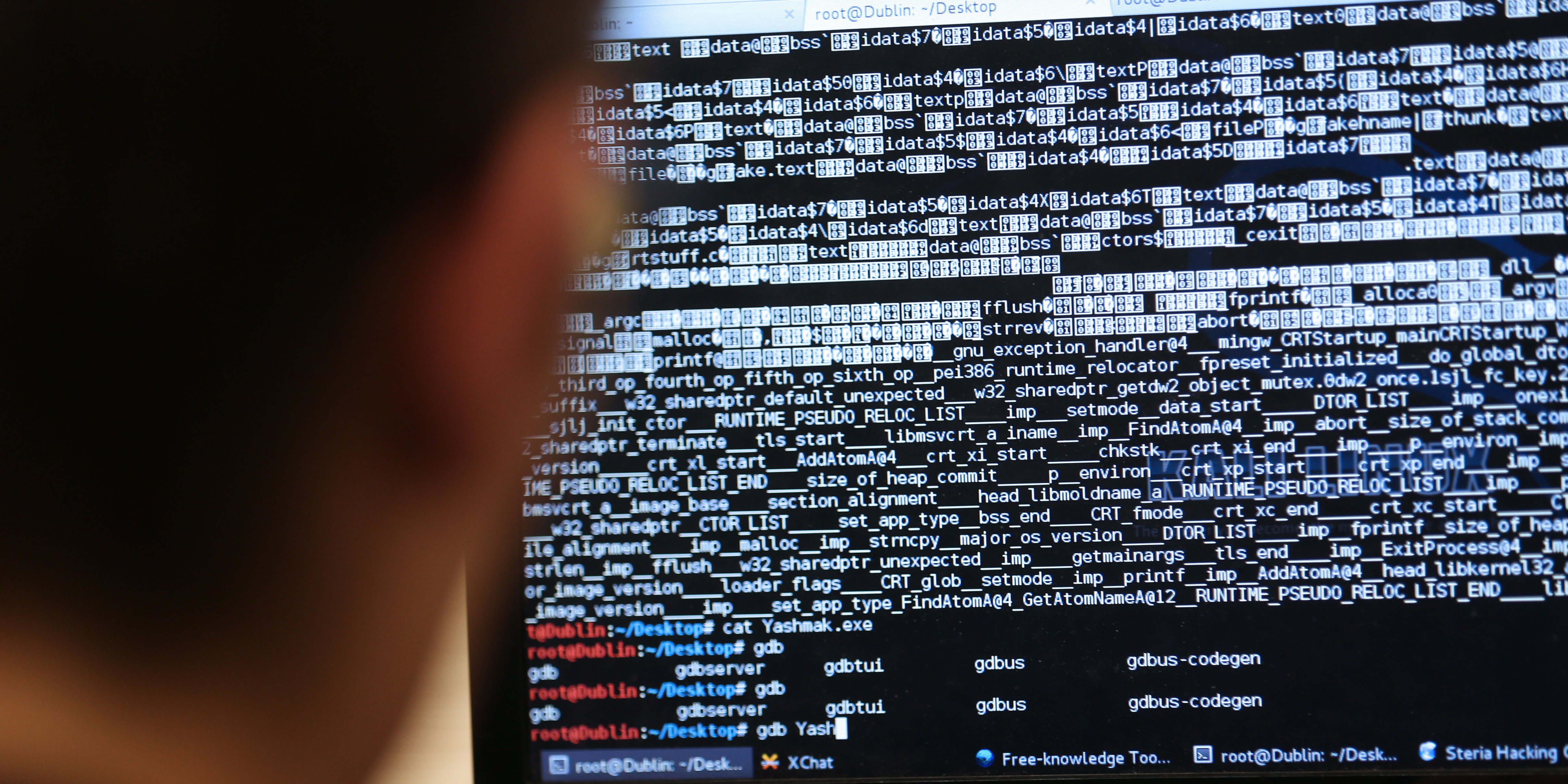While cyber attacks have multiplied in recent months in France and around the world, Europe 1 is looking at the typical profile of malicious hackers.
Men very qualified in their field who often plunge into crime for profit.
DECRYPTION
Rouen, Dax, Villefranche-sur-Saône ... In recent months, France has suffered numerous cyber attacks, some of which have received high media coverage.
To cope with this type of "ransomware" attacks which quadrupled last year, Emmanuel Macron presented his strategy for defense against cybercrime on Thursday.
An envelope of one billion euros over five years in particular to double the number of jobs in the sector, because malicious hackers, called "black hat" on the Internet [black hat, note], are very far from the image of hacker isolated behind his computer.
People with a high level of education and low income ...
It is even a new underworld, with its codes, its opacity and the mistrust that goes with it.
Organizations made up of cutting edge snipers that can be found in many Russian-speaking areas.
"These are people who have a high level of education", explains to the microphone of Europe 1 Gérôme Billois, cyberexpert at the firm Wavestone.
"The quality of studies in mathematics and computer science is very high in these countries, but incomes are low, which prompts them to fall into cybercrime."
Gérôme Billois continues: "These are people who are between 30 and 40 years old, some of whom may have completely normal lives, except that they practice criminal acts."
... who have professionalized
These "black hat" are even professionalized with, for about three years, real structures that emerge within which tasks are shared.
This is for example the case with the Egregor network, some of whose members were arrested this week.
The three hackers arrested were "affiliates", little hands who launch the attacks, but who do not develop the virus launched against their targets.
"The major known groups, like Revill, are made up of dozens of people who coordinate and act together to build the attack tools, carry them out, receive payment, and release the data."
A ransom that can be counted in millions of euros and that must be paid in Bitcoin, a cryptocurrency that is difficult to trace.
If "raçongiciel" attacks have quadrupled in France in one year, that does not make France the favorite target.
Because everyone is targeted: malicious hackers launch their virus all over the place in search of an opportunity.
But these criminals can also work for a state and thus engage in industrial espionage or rig an election.
The "white hat", these "good" hackers who help companies
But all is not dark in the world of hackers.
Thus, the "black hat" have their counterpart who "want to act for the good of companies": the "white hat" [hat blanc, ed].
Among these hackers who remain on the right side of the law, Adrien, cybersecurity consultant the day.
But evenings and weekends, helps companies concerned about the security of their sites or their applications.
"We are going to go to a program and try as many techniques as possible to circumvent security, detect small flaws that could make it possible, for example, to recover information on users."
Unlike malicious hackers, as soon as he finds a breach in the system, Adrien warns his client to correct it.
"It's almost a game, actually. We have fun and at the same time, we are also here to try to advance safety as best as possible."
A game that also allows him to fill his wallet: for each flaw spotted, his client pays him a reward that can go up to several thousand euros.

